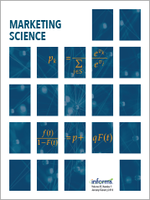Maximilian Matthe
Assistant Professor of Marketing
IU Kelley School of Business
Hi!
I'm Max, an Assistant Professor of Marketing at Indiana University's Kelley School of Business. I'm also affiliated with the Advanced Business Technologies Department.
I conduct quantitative empirical research, primarily focused on how market actors—like firms, brands, or politicians—adjust their market positions and how stakeholders react to these shifts. My current work also studies novel technologies, like LLMs, and examines their properties and implications for the marketing function.
Methodologically, I draw on tools from machine learning, modern data science, and causal inference.
At Kelley, I teach Marketing Analytics, for which I’ve recently won the Trustees Teaching Award 🎉.
You can reach me at: mpmatthe [at] iu [dot] edu
- Market Structure & Market Dynamics
- Marketing ∩ Technology
- Machine Learning ∩ Quant. Marketing
Ph.D. (Dr. rer. pol.) Marketing, 2023
Goethe University Frankfurt (Germany)
M.Sc. Money & Finance (Financial Economics), 2017
Goethe University Frankfurt (Germany)
B.Sc. Mathematics and Economics, 2015
University of Wuerzburg (Germany)
Open-Source Software
developed to disseminate my work
Contact
- mpmatthe@iu.edu.de
- 1309 E 10th St, Bloomington, IN 47405
- Book an appointment

